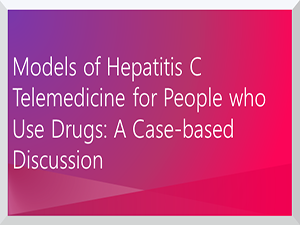Abigail Hunter, MPH, MSN, FNP-BC is a family nurse practitioner with a focus on substance use, harm reduction and HCV treatment in outpatient, community settings. After graduating from University of Michigan with a Masters’ in Public Health in Population Planning and International Health, she worked as a coordinator of a network of HIV and substance use providers in North Brooklyn. Subsequently, she translated behavioral research findings for social service agencies, provided trainings, and worked on manuscript development and grant submissions at National Development and Research Institutes, Inc. In search of medical training and a more direct impact on health behavior associated with substance use, she attended SUNY Downstate Medical Center for her BSN and MSN in Family Health. Since graduation, she worked at a Medication Assisted Treatment facility providing methadone, suboxone, HCV and primary care to substance users. In January 2020, Abigail began working with Mount Sinai Health System’s Respectful and Equitable Access to Comprehensive Health Care (REACH) Program in collaboration with VOCAL-NY, a statewide grassroots organization that builds power among low income people affected by HIV, homelessness, incarceration, through direct action, community organizing and service provision. Medical services at the low threshold, non-judgmental Mount Sinai Cures clinic include HCV treatment, wound care and suboxone provision.


